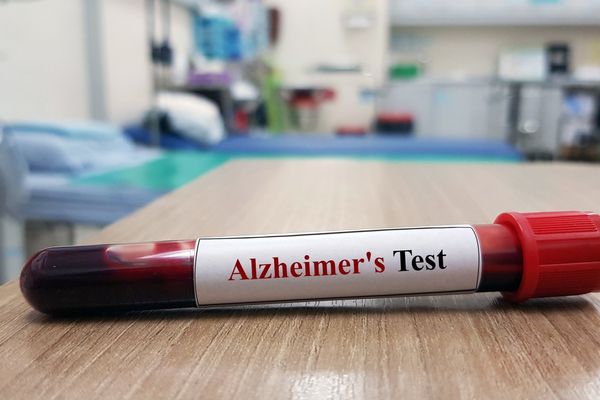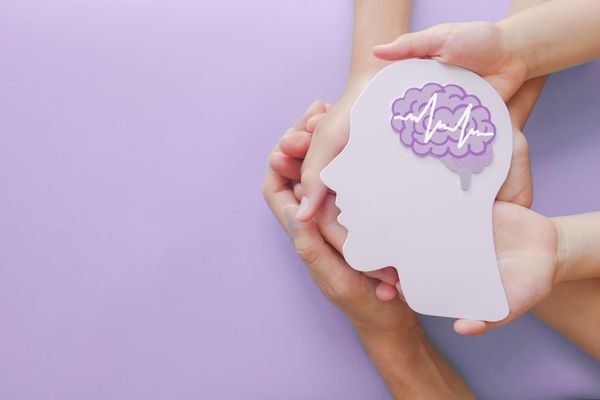By guest blogger Jean Carper
After I accidentally discovered I carry a major gene (ApoE4) that triples my risk of developing Alzheimer's, I decided to find out everything I could do to delay or prevent the onset of the symptoms of memory loss and dementia. I read thousands of scientific papers and interviewed dozens of Alzheimer's researchers who were eager to tell me.
Scientists now know Alzheimer's is not a sudden brain catastrophe. Like heart disease and cancer, it is a chronic disease of aging that progresses slowly over 10 or more years, finally releasing its symptoms. That means you have years in which to fight off the disease, and one way to do it is by eating the right stuff.
Here are five things you want on and off your menu to help keep Alzheimer's out of your future.
Say yes to:
Fish: Around the world, people who eat fish every day are 40 percent less likely to develop dementia, according to a recent large study. Best: fatty fish, such as salmon and sardines. Such omega-3 fish fat improves the functioning of brain cells.
Curry: There's at least one likely reason why the people of India have one of the lowest rates of Alzheimer's— about one fourth the rate found in parts of Pennsylvania, for example. Curry is a staple in India, and it contains curcumin, found in the spice turmeric, which in animals blocks deposits of the toxic gunk beta amyloid, believed to be a cause of Alzheimer's.
Coffee and tea: Surprisingly, heavy coffee drinkers (three to five cups a day) in one study were 65 percent less apt to develop Alzheimer's. Some experts credit the caffeine and antioxidants in coffee. Both black and green tea are rich in chemicals that protect brain cells from damage.
Juices: Having a glass of any type of fruit or vegetable juice more than three times a week reduced the risk of Alzheimer's by 76 percent in a study at Vanderbilt University. Particularly beneficial to the brain, according to other research: apple juice, pomegranate juice and wild blueberry juice.
Fruits and vegetables: Scarfing up all kinds of fruits and vegetables is a potent way to keep your aging memory sharp. Eating veggies only three times a week cut memory decline 40 percent in a major study. Highest in brain-protecting antioxidants: raspberries, raisins, blueberries, artichokes, cranberries, dried plums (prunes), blackberries, garlic.
Say no to:
Meat: People who eat meat are 20 percent more likely than nonmeat eaters to develop dementia, says a recent worldwide study. Worst: processed bacon, hot dogs and cold cuts, which contain nitrites that can lead to nitrosamines that some scientists believe help induce Alzheimer's.
Sugar: Animals fed diets with a lot of sugar get fat, have high cholesterol and ineffectual insulin and are slow to learn. Most alarming, high sugar causes brain damage from increased deposits of beta amyloid, a major cause of Alzheimer's. Worst: high fructose corn syrup, common in processed foods, including soft drinks.
Bad fats: Two villains are saturated animal fats and trans fats in processed foods. Animals fed diets of 10 percent saturated fat get dumb and dumber. According to a major study, older people who ate the most saturated fats doubled their odds of Alzheimer's; those who ate the most trans fats quadrupled Alzheimer's risk.
Extra calories: A high-calorie diet can lead to obesity, high blood pressure, fat around the middle and diabetes, upping Alzheimer's risk. Studies suggest that restricting calories reduces brain shrinkage and deposits of toxic brain proteins, both hallmarks of Alzheimer's.
Excessive alcohol: One drink a day, especially red wine, may help preserve memory. But "heavy drinking" for men and women—more than two drinks a day—doubled dementia odds, studies show. A monthly alcohol binge tripled dementia risk and passing out from alcohol at least twice in a year hiked dementia odds 10 times. Excessive alcohol is an unrecognized cause of much dementia, say experts.
Jean Carper is author of 100 Simple Things You Can Do to Prevent Alzheimer's and Age-Related Memory Loss.







